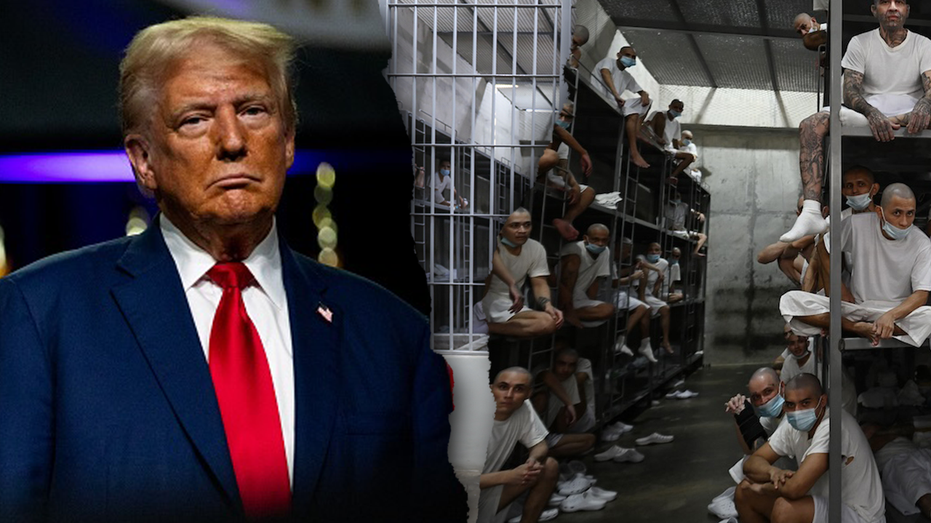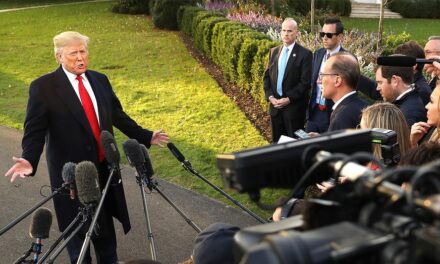Amid escalating tensions surrounding immigration policy and crime, a recent Democratic initiative to visit an alleged MS-13 gang member, who has been deported to a prison in El Salvador, has drawn substantial criticism. Various political commentators and citizens express their disapproval, labeling the plan as “pathetic” and misaligned with public safety concerns.
The Democrats’ decision to engage with deportees, particularly those associated with violent gangs like MS-13, raises eyebrows across multiple communities. The visit was intended to highlight issues surrounding immigration reform and to humanize individuals labeled as criminals. However, critics argue that such actions are tone-deaf to the realities of crime and safety that many communities face.
MS-13, or Mara Salvatrucha, has garnered infamy for its ruthless tactics and has been linked to numerous violent crimes in both the United States and El Salvador. Created in the 1980s by Salvadoran immigrants in Los Angeles, the gang has become notorious for its brutality, recruiting young members and heavily taxing neighborhoods through violence. With such a reputation, the prospect of visiting a deported member has led to a backlash, especially among those advocating for stricter immigration policies and public safety.
Even members of the Democratic Party are divided on this initiative. While some view the visit as an opportunity for outreach and discussion regarding the root causes of gang violence, including poverty and lack of opportunity, others see it as an imprudent choice that sends the wrong message to constituents who are concerned about crime. The internal dissension signifies the party’s ongoing struggle to navigate the complex terrain of immigration reform.
Critics argue that the visit could undermine the party’s credibility on public safety and immigration policy. “To even consider highlighting the experiences of individuals associated with this dangerous gang is irresponsible,” stated one outspoken political analyst. “It detracts from the stories of countless innocent victims affected by gang violence, and it risks alienating voters who prioritize safety.”
The journey intends to underscore the complexities of immigration and deportation, with advocates claiming it seeks to depict the challenges that many deported individuals face upon return to their homelands. Nonetheless, the connection to MS-13 complicates the narrative, and many perceive this as a misguided effort that discredits other immigration initiatives aimed at rehabilitation and support.
Supporters of the visit argue that it could serve as a crucial point of dialogue. They contend that understanding the cycle of violence and poverty that often leads to gang involvement may help in shaping more effective immigration and safety policies. However, those opposing this idea assert that such conversations should not be held in proximity to individuals who have perpetrated serious violent crimes, especially when such crimes have had a profound impact on American lives.
In light of the current political climate, choices about outreach to gang affiliates create a situation ripe for criticism. It highlights deep divisions among not only the political parties but also within communities on the ground. Law enforcement agencies nationwide have been grappling with the consequences of gang violence. Many community members advocate for increased measures to curb rising crime rates linked to these underground networks.
“At a time when gang violence seems to be escalating in many areas, focusing on deported gang members rather than supporting the victims and communities affected is insensitive,” said a community leader from a high-crime neighborhood. “Our focus should be on preventing young people from joining these gangs in the first place, not rehabilitating those who have already chosen that path.”
Furthermore, public opinion polls indicate that crime and safety are among the top concerns for many voters, especially in urban areas plagued by gang activity. The Democratic Party’s strategy could potentially sway undecided voters who prioritize these issues significantly. Critics fear that the visit might not only bolster negative perceptions of the party but could also hinder progress on broader immigration reform efforts that are meant to protect vulnerable populations.
Moreover, the polarized nature of American politics makes it challenging for either side to navigate these sensitive waters without inviting backlash. As the Democrats prepare for upcoming elections, their approach to immigration and crime will be under intense scrutiny. This situation is illustrative of the ongoing struggle to balance humanitarian efforts with the pressing need for public safety.
As discussions continue, some observers have called on party leaders to reconsider the approach taken with regard to deported gang members. Advocating a focus on community safety and crime reduction initiatives might resonate more favorably with constituents than outreach efforts that spotlight individuals with violent pasts.
“It’s crucial to find effective ways to address the underlying issues that fuel gang membership while ensuring our communities feel safe,” said a policy analyst. “The narrative of helping those deported should not overshadow the urgent need for protective measures against crime.”
The Democrats’ initiative faces significant hurdles, including opposition from law enforcement and mounting pressure from constituents seeking clearer stances on immigration and crime-related issues. It forces a exploring the delicate balance between ensuring humanitarian compassion and maintaining a strong security stance— a balance that has eluded many over the years.
In conclusion, the planned visit to the alleged MS-13 gang member is emblematic of the complex and often contentious dialogue surrounding immigration and public safety. As Democrats attempt to position themselves on these critical issues, they must navigate the intricacies of public perception, advocate for both compassion and safety, and ultimately strive to unify rather than polarize their constituency.
This moment serves as a reminder of the challenges political leaders face in addressing the multidimensional aspects of societal issues and housing the capacities for both empathy and security within their policy frameworks. For now, the backlash against this visit highlights the need for a more thoughtful and community-centered approach to discussions surrounding immigration, public safety, and gang violence.
































